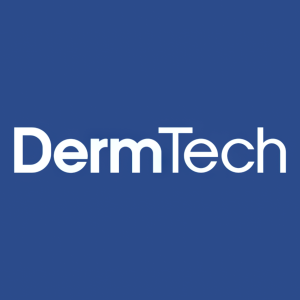DermTech Presents Research Abstracts at the 2024 American Academy of Dermatology (AAD) Annual Meeting and New Research Published in the Journal of Investigative Dermatology
The first research abstract, “Non-invasive gene expression analyses to rule out melanoma in patients with Fitzpatrick skin types IV-VI” will be presented March 9th at 8:45am PT by Maral K. Skelsey, MD, lead author and Clinical Professor of Dermatology at Georgetown University’s Medical School. In this research, the negative predictive value (NPV) for both Fitzpatrick skin type group I-III and Fitzpatrick skin type group IV-VI was greater than
“This real-world clinical study demonstrates that the DMT can help clinicians improve outcomes for cutaneous melanomas in patients of all skin types,” commented Dr. Skelsey. “This is especially important because ruling out melanoma in individuals with Fitzpatrick IV-VI skin types can be particularly challenging.”
The second research abstract titled, “Skin cancer risk is increased by somatic mutations detected noninvasively in healthy-appearing sun-exposed skin” will be presented March 9th at 10:05am PT by lead author John Whitaker, Ph.D., Senior Director of Bioinformatics at DermTech. The research found that somatic mutations in healthy-appearing sun-exposed skin indicate an increased risk for skin cancer. Furthermore, these mutations capture skin cancer risk information that is not accounted for by other risk factors.
A complete description of this research has been accepted for publication in the Journal of Investigative Dermatology and will be published on March 19th: (https://www.jidonline.org/article/S0022-202X(24)00176-3/fulltext)
This research study used non-invasively sampled DNA from healthy-appearing skin, in a reference cohort of 1,038 individuals, to measure the occurrence of somatic mutations at skin cancer-associated hotspots located within TP53 and NOTCH1. The number of detected mutations was combined with clinical variables known to be associated with skin cancer risk to create a skin cancer risk model (DNA-Skin Cancer Assessment of Risk, DNA-SCAR). DNA-SCAR’s risk calculation was validated by comparison to the
About DermTech
DermTech is a leading genomics company in dermatology and is creating a new category of medicine, precision dermatology, enabled by its non-invasive skin genomics technology. DermTech’s mission is to improve the lives of millions by providing non-invasive precision dermatology solutions that enable individualized care. DermTech provides genomic analysis of skin samples collected using its Smart StickersTM. DermTech develops and markets products that facilitate the assessment of melanoma. For additional information, please visit DermTech.
Forward-Looking Statements
This press release includes “forward-looking statements” within the meaning of the “safe harbor” provisions of the Private Securities Litigation Reform Act of 1995. The expectations, estimates, and projections of DermTech may differ from its actual results and consequently, you should not rely on these forward-looking statements as predictions of future events. Words such as “expect,” “estimate,” “project,” “budget,” “forecast,” ”aim,” “runway,” "outlook," “anticipate,” “intend,” “plan,” “strive," “may,” “will,” “sustain,” “could,” “should,” “believe,” “predict,” “potential,” “continue,” and similar expressions are intended to identify such forward-looking statements. These forward-looking statements include, without limitation, expectations and evaluations with respect to: the performance, patient benefits, cost- effectiveness, commercialization and adoption of DermTech’s products and the market opportunity for these products; expectations regarding DermTech’s potential growth, scale, patient reach, financial outlook, including its cash runway and future financial performance DermTech’s ability to increase its test volume, revenue and the proportion of reimbursed billable tests and control or reduce cost, expenses and cash burn, including as a result of DermTech’s recent restructuring actions; and expectations regarding agreements with or reimbursement or cash collection patterns from government payers (including Medicare) or commercial payers and related billing practices or number of covered lives. These forward-looking statements involve significant risks and uncertainties that could cause the actual results to differ materially from the expected results. Most of these factors are outside of the control of DermTech and are difficult to predict. Factors that may cause such differences include, but are not limited to: (1) the outcome of any legal proceedings that may be instituted against DermTech; (2) DermTech’s ability to obtain additional capital when and as needed or on acceptable terms; (3) the existence of favorable or unfavorable clinical guidelines for DermTech’s tests; (4) the reimbursement of DermTech’s tests by government payers (including Medicare) and commercial payers; (5) the ability of patients or healthcare providers to obtain coverage of or sufficient reimbursement for DermTech’s products; (6) DermTech’s ability to grow, manage growth and retain its key employees and maintain or improve its operating efficiency and reduce operating expenses; (7) changes in applicable laws or regulations; (8) the market adoption and demand for DermTech’s products and services together with the possibility that DermTech may be adversely affected by other economic, business, and/or competitive factors; (9) DermTech’s ability to continue as a going concern and (10) other risks and uncertainties included in the “Risk Factors” section of the most recent Annual Report on Form 10-K filed by DermTech with the Securities and Exchange Commission (the “SEC”), and other documents filed or to be filed by DermTech with the SEC, including subsequently filed reports. DermTech cautions that the foregoing list of factors is not exclusive. You should not place undue reliance upon any forward- looking statements, which speak only as of the date made. DermTech does not undertake or accept any obligation or undertaking to release publicly any updates or revisions to any forward-looking statements to reflect any change in its expectations or any change in events, conditions, or circumstances on which any such statement is based.
View source version on businesswire.com: https://www.businesswire.com/news/home/20240308294553/en/
Steve Kunszabo
DermTech
(858) 291-1647
steve.kunszabo@dermtech.com
Source: DermTech, Inc.







